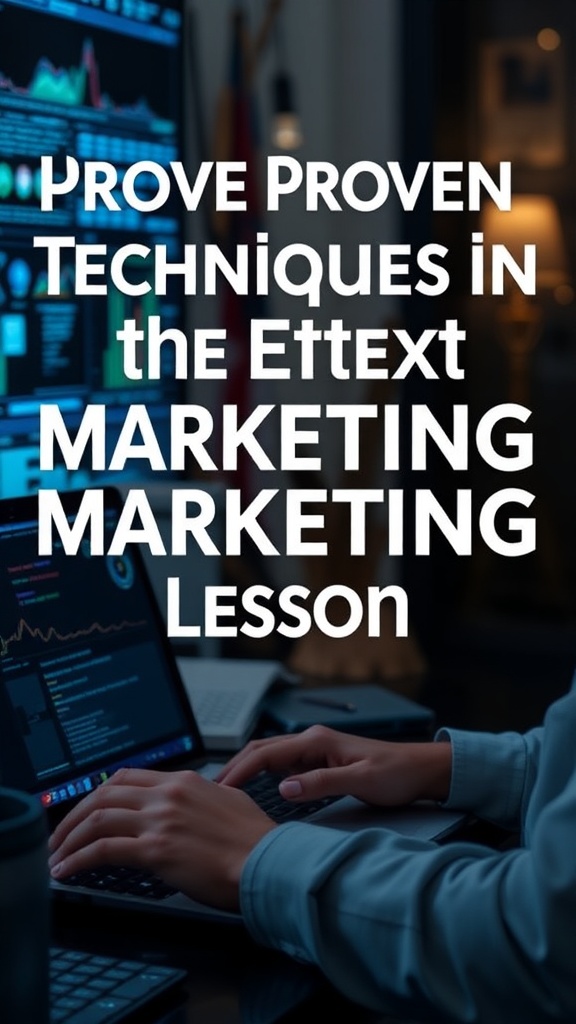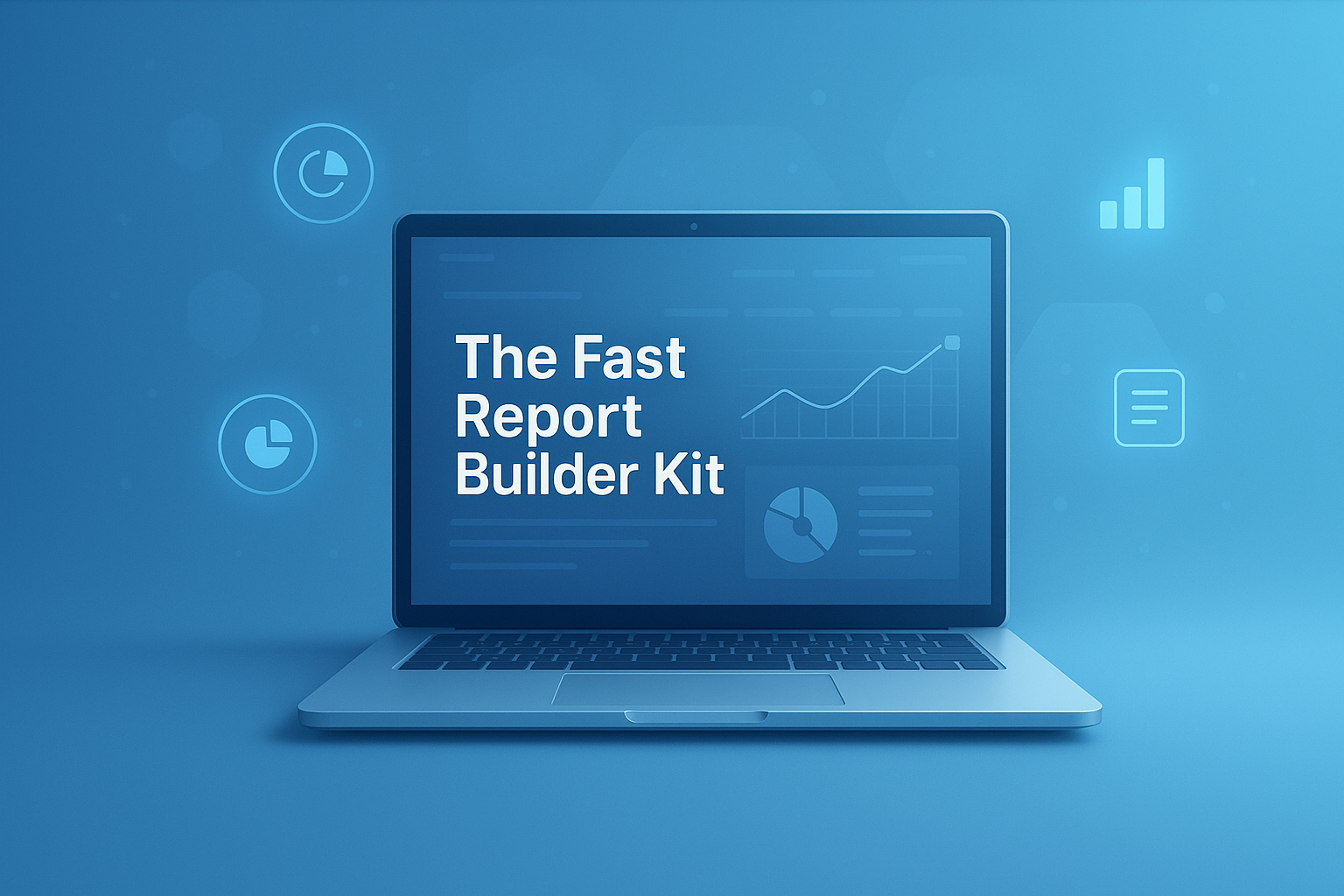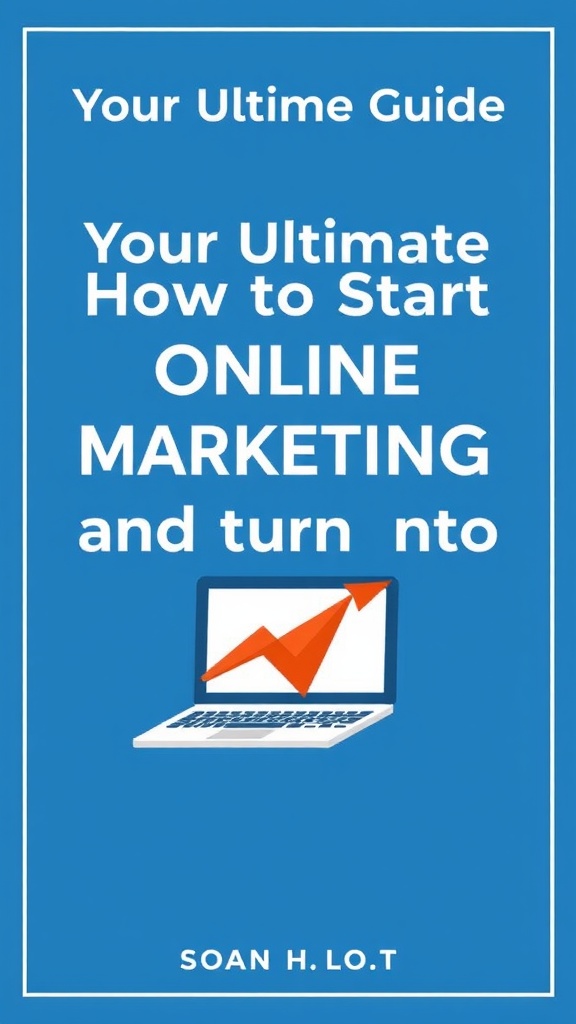Unlock Proven Techniques in Your Next Online Marketing Lesson to Accelerate Growth and Drive Results
In my experience with online marketing lesson, I've been researching what makes lessons truly effective for accelerating growth. I want to share what I've learned because I believe that mastering proven techniques can significantly improve results. During my journey, I’ve discovered that an engaging, strategic approach to an online marketing lesson can make all the difference in achieving your goals.
From what I’ve learned, a well-structured online marketing lesson isn’t just about theory — it’s about applying practical strategies that drive tangible results. I’ve found that incorporating real-world examples and interactive elements keeps learners motivated and ensures the techniques stick. I hope this guide helps you unlock the secrets to designing an impactful online marketing lesson.
<!– Understanding the Foundations of an Effective online marketing lesson –>
Understanding the Foundations of an Effective online marketing lesson
Defining Clear Objectives
In my experience, the first step to a successful online marketing lesson is setting clear, measurable objectives. When I’ve designed lessons without specific goals, I noticed that students or participants tend to lose focus quickly. From what I’ve learned, defining what I want my audience to achieve — whether it’s understanding SEO basics or mastering social media ads — helps me craft targeted content that delivers results.
Understanding Your Audience
I’ve discovered that knowing my audience’s needs and skill levels is crucial. When I tailor my online marketing lesson content to match their experience, I see higher engagement and better retention. From surveys and feedback, I’ve learned that addressing specific pain points makes the lesson more relevant and impactful. I recommend investing time in audience research before developing your lesson plan.
Structuring Content for Engagement
In my experience, breaking down complex topics into manageable sections improves comprehension. I’ve found that using storytelling, visuals, and real-life examples keeps my audience engaged. An effective online marketing lesson should flow logically, building from foundational concepts to advanced strategies, ensuring learners stay motivated and absorb the information effectively.
<!– Key Strategies to Incorporate in Your online marketing lesson –>
Key Strategies to Incorporate in Your online marketing lesson
Leveraging Data and Analytics
In my experience, integrating data-driven insights into your online marketing lesson can elevate its effectiveness. I’ve discovered that showing real analytics and case studies helps learners understand what strategies work and why. From my research, I’ve found that teaching how to interpret metrics like conversion rates and ROI encourages a results-oriented mindset.
Emphasizing Practical Application
I recommend making your online marketing lesson as hands-on as possible. When I include exercises like creating ad campaigns or optimizing websites, learners can immediately apply what they’ve learned. From my experience, this practical approach not only reinforces concepts but also boosts confidence in executing strategies independently.
Incorporating Latest Trends and Technologies
In my journey, staying updated with the latest online marketing trends has been vital. I’ve found that introducing new tools like AI-based marketing platforms or emerging social media features keeps my lessons fresh and relevant. I believe that an online marketing lesson that reflects current industry developments prepares learners for real-world challenges.
<!– Tools and Resources to Enhance Your online marketing lesson –>
Tools and Resources to Enhance Your online marketing lesson
Analytics and Optimization Tools
From my experience, tools like Google Analytics and SEMrush are invaluable for demonstrating how data informs marketing decisions. I’ve used these tools extensively in my online marketing lesson to show students how to track and analyze campaign performance. I recommend integrating live demonstrations to give learners hands-on experience.
Content Creation Platforms
I’ve found that platforms like Canva and Buffer help me teach content creation and scheduling effectively. When I include tutorials on these tools, my students appreciate how accessible and user-friendly they are. Incorporating such practical resources into your online marketing lesson makes the learning process more interactive and engaging.
Learning Management Systems (LMS)
In my experience, an LMS like Teachable or Thinkific allows me to organize my online marketing lesson content seamlessly. These platforms facilitate quizzes, assignments, and tracking progress, which are essential for maintaining learner engagement. I believe choosing the right LMS can significantly improve the overall effectiveness of your lessons.
Applying Proven Techniques for Maximum Impact
Real-World Case Studies
In my research, I’ve found incorporating case studies into my online marketing lesson provides practical insights. Sharing success stories and failures helps learners understand the real-world application of strategies. I recommend analyzing these examples thoroughly to inspire confidence and creativity among your students.
Interactive Elements and Quizzes
I’ve discovered that quizzes and interactive activities keep my audience engaged and help reinforce key concepts. During my online marketing lesson, I make sure to include short assessments that encourage reflection. From what I’ve experienced, these elements boost retention and make the learning experience more enjoyable.
Continuous Feedback and Improvement
In my experience, seeking feedback after each lesson helps me refine my teaching methods. I believe that an online marketing lesson should be adaptable, incorporating new techniques based on learner input. Regularly updating content ensures that your lessons stay relevant and impactful.
References and Resources
Throughout my research on online marketing lesson, I’ve found these resources incredibly valuable. I recommend checking them out for additional insights:
Authoritative Sources on online marketing lesson
-
Google Analytics Academy
google.comAn essential resource for understanding how to analyze website data, which I incorporate into my online marketing lesson to teach learners how to measure success effectively.
-
Moz’s Beginner's Guide to SEO
moz.comA comprehensive guide that I regularly use in my online marketing lesson to help students understand the fundamentals of search engine optimization.
-
HubSpot Resources
hubspot.comOffers valuable articles and templates I use to teach content marketing strategies within my online marketing lesson.
-
Neil Patel’s Blog
neilpatel.comFrequent updates on marketing tactics, which I incorporate into my online marketing lesson to keep content current and effective.
-
Content Marketing Institute
contentmarketinginstitute.comProvides research and case studies that I use to enrich my online marketing lesson with real-world examples.
-
HubSpot Academy
academy.hubspot.comOffers free courses on inbound marketing, which I integrate into my lessons for comprehensive learning experiences.
-
Buffer Resources
buffer.comA practical resource for social media scheduling and analytics, which I demonstrate during my online marketing lesson.
-
Search Engine Land
searchengineland.comA leading industry publication I follow to keep my lessons updated on SEO and SEM trends.
Frequently Asked Questions
What are the most important elements of an effective online marketing lesson?
In my experience, the most important elements include clear objectives, engaging content, practical exercises, and real-world examples. Incorporating data analysis and the latest trends also makes the online marketing lesson more impactful and relevant.
How can I make my online marketing lesson more engaging?
I recommend including interactive elements such as quizzes, live demonstrations, and real-life case studies. Sharing personal experiences and success stories also helps to connect with your audience on a deeper level, making the lesson more memorable.
What tools are essential for delivering an online marketing lesson?
Tools like Google Analytics, SEMrush, Canva, and LMS platforms such as Teachable are essential. I’ve used these extensively to demonstrate concepts and facilitate hands-on learning, which I believe enhances the overall effectiveness of the lesson.
How often should I update my online marketing lesson content?
Based on my experience, I recommend reviewing and updating your lesson content regularly, at least quarterly, to incorporate new trends, tools, and insights. This ensures your online marketing lesson remains current and valuable for learners.
Can I incorporate social media strategies into my online marketing lesson?
Absolutely. I’ve found that teaching social media strategies, including content scheduling and engagement tactics, is crucial for a comprehensive online marketing lesson. Practical demos using tools like Buffer or Hootsuite help learners understand how to implement these strategies effectively.
Conclusion
In conclusion, my research on online marketing lesson has shown that combining strategic planning, practical application, and up-to-date tools creates a powerful learning experience. I believe that incorporating proven techniques and real-world examples is essential to drive results and accelerate growth. I hope this guide helps you unlock the full potential of your online marketing lesson for maximum impact.
Find out more information about “online marketing lesson”
Search for more resources and information:







